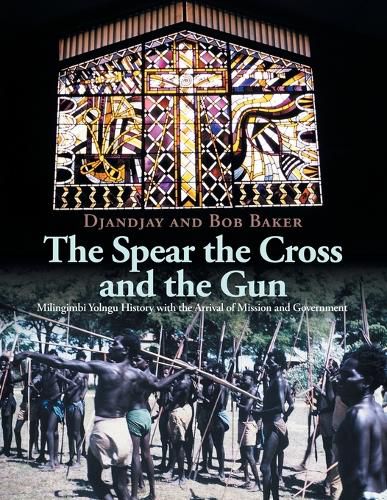Readings Newsletter
Become a Readings Member to make your shopping experience even easier.
Sign in or sign up for free!
You’re not far away from qualifying for FREE standard shipping within Australia
You’ve qualified for FREE standard shipping within Australia
The cart is loading…






This title is printed to order. This book may have been self-published. If so, we cannot guarantee the quality of the content. In the main most books will have gone through the editing process however some may not. We therefore suggest that you be aware of this before ordering this book. If in doubt check either the author or publisher’s details as we are unable to accept any returns unless they are faulty. Please contact us if you have any questions.
Aboriginal and Torres Strait Islander people are warned that the cover and inside pages of this book contain images of people who have died. We pay our respects to those who have passed away. The Aboriginal tribe the Yolngu, of North-east Arnhem Land, had always fiercely resisted intruders into their little-known and untamed country. Why then, did Methodist missionaries seek them out? One answer could be due to the Bible; another could be that by the 1920s, the future of the Aboriginal Yolngu people of North-east Arnhem Land was dire, due to European contact throughout the country. What did happen to the Yolngu living by their own laws at the time of the arrival of the first Christian mission 'balanda' (foreigners), who settled into Yolngu land? Yolngu Rom (law) was enforced by the spear until the arrival of the missionaries, carrying their Bibles and Crosses. Although the missionaries were few, the Australian Police then began to visit, support new western laws that were being introduced to the Yolngu. Justice was meted out by law courts and enforced by the power of the gun. When the law was broken, there was the possibility of imprisonment or even capital punishment. With the arrival of the Methodist Overseas Mission offering modern conveniences and living conditions for the Yolngu, other Yolngu clans living on the mainland became attracted to the idea of settling at Milingimbi. The Methodist Mission became a buffer between the Yolngu and the encroaching dominant western society. Yolngu communities began to grow and prosper, unlike Aboriginal communities down south. There, the Europeans had fenced tribal lands and disempowered the Aboriginal people, who had died in large numbers. By the 1920s, Europeans considered Aboriginal people to be a "dying race" - which, of course, was incorrect.
$9.00 standard shipping within Australia
FREE standard shipping within Australia for orders over $100.00
Express & International shipping calculated at checkout
This title is printed to order. This book may have been self-published. If so, we cannot guarantee the quality of the content. In the main most books will have gone through the editing process however some may not. We therefore suggest that you be aware of this before ordering this book. If in doubt check either the author or publisher’s details as we are unable to accept any returns unless they are faulty. Please contact us if you have any questions.
Aboriginal and Torres Strait Islander people are warned that the cover and inside pages of this book contain images of people who have died. We pay our respects to those who have passed away. The Aboriginal tribe the Yolngu, of North-east Arnhem Land, had always fiercely resisted intruders into their little-known and untamed country. Why then, did Methodist missionaries seek them out? One answer could be due to the Bible; another could be that by the 1920s, the future of the Aboriginal Yolngu people of North-east Arnhem Land was dire, due to European contact throughout the country. What did happen to the Yolngu living by their own laws at the time of the arrival of the first Christian mission 'balanda' (foreigners), who settled into Yolngu land? Yolngu Rom (law) was enforced by the spear until the arrival of the missionaries, carrying their Bibles and Crosses. Although the missionaries were few, the Australian Police then began to visit, support new western laws that were being introduced to the Yolngu. Justice was meted out by law courts and enforced by the power of the gun. When the law was broken, there was the possibility of imprisonment or even capital punishment. With the arrival of the Methodist Overseas Mission offering modern conveniences and living conditions for the Yolngu, other Yolngu clans living on the mainland became attracted to the idea of settling at Milingimbi. The Methodist Mission became a buffer between the Yolngu and the encroaching dominant western society. Yolngu communities began to grow and prosper, unlike Aboriginal communities down south. There, the Europeans had fenced tribal lands and disempowered the Aboriginal people, who had died in large numbers. By the 1920s, Europeans considered Aboriginal people to be a "dying race" - which, of course, was incorrect.